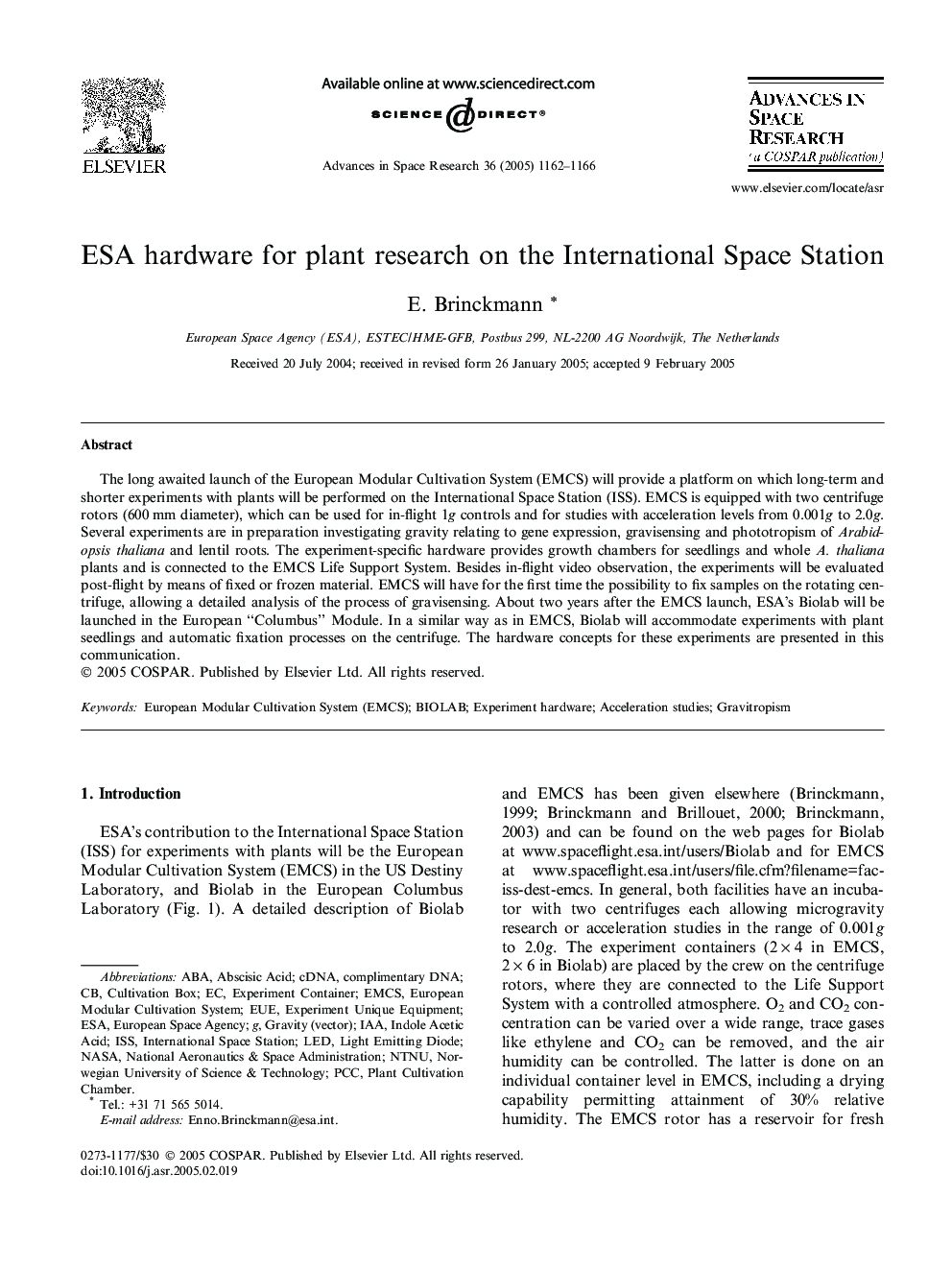| Article ID | Journal | Published Year | Pages | File Type |
|---|---|---|---|---|
| 10694682 | Advances in Space Research | 2005 | 5 Pages |
Abstract
The long awaited launch of the European Modular Cultivation System (EMCS) will provide a platform on which long-term and shorter experiments with plants will be performed on the International Space Station (ISS). EMCS is equipped with two centrifuge rotors (600Â mm diameter), which can be used for in-flight 1g controls and for studies with acceleration levels from 0.001g to 2.0g. Several experiments are in preparation investigating gravity relating to gene expression, gravisensing and phototropism of Arabidopsis thaliana and lentil roots. The experiment-specific hardware provides growth chambers for seedlings and whole A. thaliana plants and is connected to the EMCS Life Support System. Besides in-flight video observation, the experiments will be evaluated post-flight by means of fixed or frozen material. EMCS will have for the first time the possibility to fix samples on the rotating centrifuge, allowing a detailed analysis of the process of gravisensing. About two years after the EMCS launch, ESA's Biolab will be launched in the European “Columbus” Module. In a similar way as in EMCS, Biolab will accommodate experiments with plant seedlings and automatic fixation processes on the centrifuge. The hardware concepts for these experiments are presented in this communication.
Keywords
Related Topics
Physical Sciences and Engineering
Earth and Planetary Sciences
Space and Planetary Science
Authors
E. Brinckmann,
